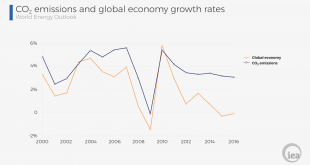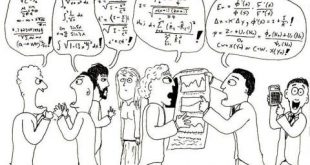from Lars Syll Randomised experiments require much more than just randomising an experiment to identify a treatment’s effectiveness. They involve many decisions and complex steps that bring their own assumptions and degree of bias before, during and after randomisation … Some researchers may respond, “are RCTs not still more credible than these other methods even if they may have biases?” For most questions we are interested in, RCTs cannot be more credible because they cannot be applied...
Read More »The WHY of crazy models
from Asad Zaman I was professionally trained as an economist, and learned how to build models with the best. As described in detail in a previous post on “The Education of An Economist“, it was only by accident that, a long time after graduate school, I learned of glaring conflicts between the theory I had been taught, and the historical evidence about effects of free trade and trade barriers. Further exploration along this direction dramatically widened the chasm between the economic...
Read More »Reducing the health-care tax
from Jared Bernstein and Dean Baker One of most enduring, economically and socially damaging, downright frustrating facts about life in the United States is how expensive health care is here. Not only does U.S. health care cost far more than in other advanced economies, but compared with the nations that spend less, we have worse or equivalent health outcomes. In fact, U.S. life expectancy now lags behind that of all the advanced economies. An MRI scan that cost $1,400 here went for...
Read More »Chicago economics — only for Gods and Idiots
from Lars Syll If I ask myself what I could legitimately assume a person to have rational expectations about, the technical answer would be, I think, about the realization of a stationary stochastic process, such as the outcome of the toss of a coin or anything that can be modeled as the outcome of a random process that is stationary. I don’t think that the economic implications of the outbreak of World war II were regarded by most people as the realization of a stationary stochastic...
Read More »Episode 108: The Hippie Cannibal
Topics include: - For as little as $0.17 a day, AD-FREE listening and EXCLUSIVE podcast episodes can be yours by joining our Patreon! http://www.patreon.com/supernaturaloccurrencestudiespodcast Episode begins at: 18:47 - The spider web grows! We tackle yet another heinous killer with shadowy links to something bigger! - Who is Stanley Dean Baker and Harry Allen Stroup? - The "Hippie Cannibal" crimes explained - Aftermath and where are they now? - Shadowy connections, Four...
Read More »Simpson’s Paradox
from Asad Zaman Statistics and Econometrics today are done without any essential reference to causality – this is much like try to figure out how birds fly without taking into account their wings. Judea Pearl “The Book of Why” Chapter 2 tells the bizarre story of how the discipline of statistics inflicted causal blindness on itself, with far-reaching effects for all sciences that depend on data. These notes are planned as an accompaniment and detailed explanation of the Pearl, Glymour,...
Read More »Economic growth and carbon emissions are closely linked.
source
Read More »Dean Baker on the Crisis 01/09/2012
Dean Baker of the Center for Economic Policy and Research talks with EconTalk host Russ Roberts about the financial crisis. Baker sees the crisis as part of a broader set of phenomena--rising inequality and declining unionization. Baker is highly critical on both economic and political grounds of the policy attempts to stimulate the economy as well as the governance structure of the Federal Reserve. The conversation closes with a discussion of potential innovations to lower the budgetary...
Read More »Dean Baker on the Crisis 01/09/2012
Dean Baker of the Center for Economic Policy and Research talks with EconTalk host Russ Roberts about the financial crisis. Baker sees the crisis as part of a broader set of phenomena--rising inequality and declining unionization. Baker is highly critical on both economic and political grounds of the policy attempts to stimulate the economy as well as the governance structure of the Federal Reserve. The conversation closes with a discussion of potential innovations to lower the budgetary...
Read More »Economists saving the world …
from Lars Syll
Read More » Real-World Economics Review
Real-World Economics Review







